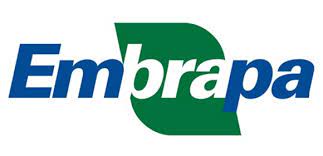EDUCATIONAL EVASION AND RETENTION IN THE TECHNICAL PROFESSIONAL EDUCATION OF FAETEC
DOI:
https://doi.org/10.47820/recima21.v4i12.4717Keywords:
Professional Education, Eletrotechnical, Eletronic, Educational EvasionAbstract
In the context of Technical Professional Education of Foundation of support to the Technical School of Rio de Janeiro – Faetec, research in which technical unity, in which series and which course the rate of evasion is more frequent brought as result of the qualitative analysis, perceptions and expectations of the interviewed about the endurance of the duality propaedeutic/professional education, the multifactorial and and the high rate of educational evasion and retention, mostly in the early series. As result of the quantitative investigation, the collected data pointed to alarming rate of the technical unities and, again, at the early series of all courses and unities researched. In the State Technical School Ferreira Viana, the electronic course showed the highest rate of evasion at the researched period. At the State Technical School João Luiz do Nascimento the Electrotechnical course the highest rate occurred of evasion. The State Technical School Visconde de Mauá showed a certain equilibrium between the rates of evasion and the course of electronical showed the highest rates, this unity also presented the highest evasions rates for the early series. The collect and analysis of information, in the qualitative approach, was accomplished through interview semi-structured with use of content analysis technic of Laurence Bardin. In the quantitative analysis, the materials were collected of the educational secretariat of the technical unities selected for the search and analyzed through the use of statistic as the results, lately, projected to all the Faetec network.
Downloads
References
ALICERCE, C. Educação pós pandemia nas escolas públicas. [S. l.]: Instituto Educacional, 2022. Disponível em: https://blog.institutoalicerceedu.org.br/educacao-pos-pandemia-nas-escolas-publicas/?gad_source=1&gclid=CjwKCAiA1fqrBhA1EiwAMU5m_3tPUxyfGorCVZsEPAU9ywiMnzi8FdE54esZoV_mFlMu7jCkpX5f_hoCeH4QAvD_BwE. Acesso em: 17 dez. 2023.
ARAÚJO, C. F. de; SANTOS, R. A. dos. A educação profissional de nível médio e os fatores internos/externos às instituições que causam a evasão escolar. In: COOPERATION, T. 4th International Congress on U. (Ed.). Silo. Tipos. [s.n.], December 5th through 7th, 2012. p. 1 – 17. ISBN 978-85-62326-96-7. Disponível em: https://silo.tips/download/a-educaao-profissional-de-nivel-medio-e-os-fatores-internos-externos-as-institui. Acesso em: 11 nov. 2021.
BARDIN, L. Análise de conteúdo. São Paulo: Edições 70, 2011.
BOGDAN, R. C.; BIKLEN, S. K. Investigação qualitativa em educação: uma introdução à teoria e aos métodos. Tradutores: Maria João Alvarez, Sara Bahia dos Santos e Telmo Mourinho Baptista. Porto: [s. n.], 1994. 167 p. ISBN 972-0·34112-2.
BRASIL Instituto Nacional de Estudos e Pesquisas Educacionais Anísio Teixeira (Inep). Taxas de Rendimento Escolar. Brasilia: Inep, 2023. Disponível em: https://www.gov.br/inep/pt-br/acesso-a-informacao/dados-abertos/indicadores-educacionais/taxas-de-rendimento-escolar. Acesso em: 18 jul. 2023.
BRASIL Ministério da Educação. Evasão no ensino médio supera 12%, revela pesquisa inédita. Portal MEC, Brasília, 20 jun. 2017. Disponível em: http://portal.mec.gov.br/ultimas-noticias/211-218175739/50411-evasao-no-ensino-medio-supera-12-revela-pesquisa-inedita. Acesso em: 09 jul. 2023.
BRASIL Presidência da República. Lei nº 12.527, de 18 de novembro DE 2011. Disponível em: https://www.planalto.gov.br/ccivil_03/_ato2011-2014/2011/lei/l12527.htm. Acesso em: 11 nov. 2021.
BRASIL. Lei Geral de Proteção de Dados Pessoais (LGPD). Brasilia; Cas aCivil, 2018. Disponível em: http://www.planalto.gov.br/ccivil_03/_ato2015-018/2018/lei/l13709.html. Acesso em: 16 mar. 2022.
DENZI, N. K.; LINCOLN, Y. (org.). O Planejamento da Pesquisa Qualitativa: teorias e abordagens. 2. ed. Tradução: Sandra Regina. Porto Alegre: Artmed, 2006. 217 p.
EDUCACIONAL, E. Déficit educacional pós-pandemia: quais os impactos na educação? [S. l.: s. n.], 2022. Disponível em: https://educacional.com.br/artigos/deficit-educacional-pos-pandemia/. Acesso em: 17 dez. 2023.
FREITAS, J. L. A. de (org.). A escola, o currículo e as práticas de ensino a partir da BNCC: A era digital e a covid-19. 2. ed. Linhares: Faceli, 2020. v. 2. 128 p. ISBN 9798552216659. Edição do Kindle.
FUNDAÇÃO DE APOIO À ESCOLA TÉCNICA-FAETEC. Regimento norteador das unidades escolares da educação básica/técnica da rede FAETEC. Rio de Janeiro: Fatec, 2020. p. 1-58.
INSPER. Políticas públicas para redução do abandono e evasão escolar de jovens. Brasília: [s.n.], 2017. p. 1 – 222. Disponível em: http://gesta.org.br/wp-content/uploads/2017/09/Pol%C3%ADticas-p%C3%BAblicas-para-a-redu%C3%A7%C3%A3o-do-abandono-e-evas%C3%A3o-escolar-de-jovens.pdf. Acesso em: 21 dez. 2021.
MORAES, M. C.; VALENTE, J. A. Como pesquisar em educação a partir da complexidade e da transdisciplinaridade?. São Paulo: Paulus, 2008.
PEREIRA, V. Diagnóstico do abandono e da evasão escolar no Brasil. [S. l.: s. n.], 2022. Disponível em: https://imdsbrasil.org/doc/ImdsA0012022Diagn%C3%B3sticoAbandonoEvas%C3%A3oEscolarBrasil.pdf. Acesso em: 12 jul. 2023.
RANGEL, F. de O. et al. Evasão ou mobilidade: conceito e realidade em uma licenciatura: uma Análise do Rendimento e da Evasão. Ciência & Educação, Bauru, jan./mar. 2019.Disponível em: https://doi.org/10.1590/1516-731320190010003. Acesso em: 27 mar. 2022.
ROSA, A. H.; AQUINO, F. J. A. de. A evasão escolar na educação profissional técnica de nível médio: um olhar profundo sobre dois grandes vilões – a ausência de informações e a falta de identidade do ensino técnico. Res., Soc. Dev. 2019. ISSN 2525-3409. Disponível em: https://rsdjournal.org/index.php/rsd/article/view/1151/951. Acesso em: 28 mar. 2022.
SILVA, M. N. Evasão na educação profissional técnica de jovens e adultos: o caso da Faetec. 2023. 308 p. Tese (Doutorado em Ciências da Educação) — Universidade Columbia instituição pública estatal Fundação de Apoio à Escola Técnica do Estado do Rio de Janeiro – Faetec, Del Paraguay, Asunción – PY, 2023.
UNESCO, OREALC. Educação de qualidade para todos: um assunto de direitos humanos. 2. ed. Brasília: [s. n.], 2008. Disponível em: https://unesdoc.unesco.org/ark:/48223/pf0000150585. Acesso em: 5 mar. 2022.
UNICEF. Busca Ativa Escolar. Brasilia: Unicef, 2023. Disponível em: https://buscaativaescolar.org.br/. Acesso em: 17 dez. 2023.
YIN, R. K. Estudo de caso: planejamento e métodos. Alegre, RS: Bookman, 2005.
Downloads
Published
How to Cite
License
Copyright (c) 2023 RECIMA21 - Revista Científica Multidisciplinar - ISSN 2675-6218

This work is licensed under a Creative Commons Attribution 4.0 International License.
Os direitos autorais dos artigos/resenhas/TCCs publicados pertecem à revista RECIMA21, e seguem o padrão Creative Commons (CC BY 4.0), permitindo a cópia ou reprodução, desde que cite a fonte e respeite os direitos dos autores e contenham menção aos mesmos nos créditos. Toda e qualquer obra publicada na revista, seu conteúdo é de responsabilidade dos autores, cabendo a RECIMA21 apenas ser o veículo de divulgação, seguindo os padrões nacionais e internacionais de publicação.

 Clique para ver detalhes
Clique para ver detalhes 











